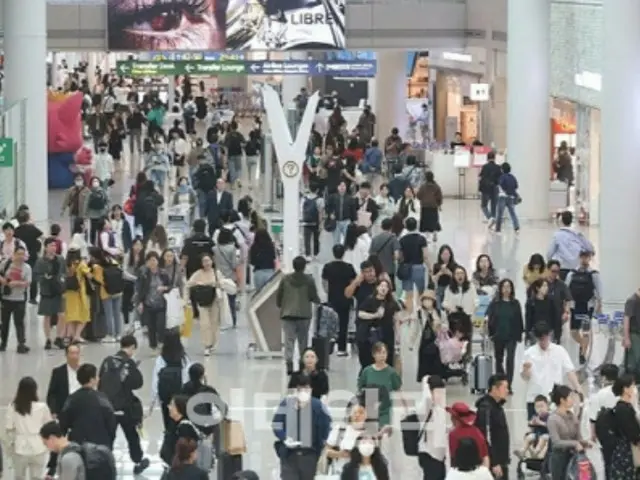Even when they gather together, the tea ceremony is omitted or simplified. According to the travel e-commerce platform ``Klook'' on the 29th, this year's mid-autumn celebration (Chuseok, mid-autumn festival) period.
, the number of overseas travel product reservations in South Korea increased by 568% compared to the previous year. With longer holidays, the number of U.S. and European travel product reservations grew by 283%.
The perception of tea ceremonies is also changing. Lotte members are currently spending more than 20s to 50s ahead of their mid-autumn celebration.
As a result of a survey conducted among 4,000 people, 6 out of 10 answered, ``I do not perform tea ceremonies.'' 46.0% of respondents said they planned to visit their parents' homes or relatives' homes.
30.0% of respondents said they would relax at home, and 22.4% said they would go on a trip. More than 760 respondents said they had travel plans over the mid-autumn celebration holidays.
As a result, the average travel itinerary in South Korea was 3.4 days, and the average travel itinerary overseas was 5.3 days. In fact, according to the HANA tour survey, mid-autumn celebration holidays (September 28th to October 3rd)
The number of overseas travel reservations departing from September 29th to October 8th was approximately 30% higher than this summer's peak season (July 27th to August 5th).
Due to the burden of preparing for the tea ceremony, some families are avoiding even meeting on Meishet, and this should be changed.
Efforts are continuing. Three Confucian cultural organizations, including the Sungkyunkwan Ceremony Establishment Committee, issued a ``Tea Ceremony Standard Plan'' in January this year, recommending ``simplifying rituals.''
According to the standard plan, the basic foods for a tea ceremony are △pine needle rice cakes, △namul, △grilled foods, △kimchi, △fruit, and △alcohol. Other arrangements will be mutually agreed upon by the family. According to books such as ``Shiki Densho'', chi
Foods that contain oil, such as fried foods and fried foods, are considered bad, and are not essential foods for a tea ceremony. Industry insiders say, ``MZ generation (millennial generation and Z generation, born between 1980 and 2000)
``The landscape of mid-autumn celebrations is rapidly changing due to the spread of mid-autumn celebrations into society, and rituals and tea ceremonies have been simplified since the COVID-19 virus.''
2023/09/29 21:28 KST
Copyrights(C) Edaily wowkorea.jp 78

